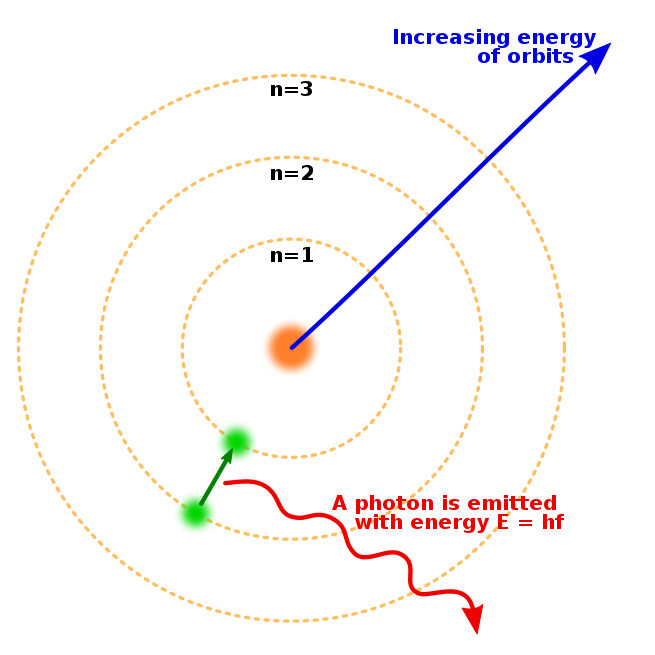Main Difference
The main difference between Analogy and Metaphor is that the Analogy is a inference or argument from one particular to another particular and Metaphor is a figure of speech.
-
Analogy
Analogy (from Greek ἀναλογία, analogia, “proportion”, from ana- “upon, according to” [also “against”, “anew”] + logos “ratio” [also “word, speech, reckoning”]) is a cognitive process of transferring information or meaning from a particular subject (the analog, or source) to another (the target), or a linguistic expression corresponding to such a process. In a narrower sense, analogy is an inference or an argument from one particular to another particular, as opposed to deduction, induction, and abduction, in which at least one of the premises, or the conclusion, is general rather than particular in nature. The term analogy can also refer to the relation between the source and the target themselves, which is often (though not always) a similarity, as in the biological notion of analogy.
Analogy plays a significant role in problem solving, as well as decision making, argumentation, perception, generalization, memory, creativity, invention, prediction, emotion, explanation, conceptualization and communication. It lies behind basic tasks such as the identification of places, objects and people, for example, in face perception and facial recognition systems. It has been argued that analogy is “the core of cognition”. Specific analogical language comprises exemplification, comparisons, metaphors, similes, allegories, and parables, but not metonymy. Phrases like and so on, and the like, as if, and the very word like also rely on an analogical understanding by the receiver of a message including them. Analogy is important not only in ordinary language and common sense (where proverbs and idioms give many examples of its application) but also in science, philosophy, law and the humanities. The concepts of association, comparison, correspondence, mathematical and morphological homology, homomorphism, iconicity, isomorphism, metaphor, resemblance, and similarity are closely related to analogy. In cognitive linguistics, the notion of conceptual metaphor may be equivalent to that of analogy. Analogy is also a basis for any comparative arguments as well as experiments whose results are transmitted to objects that have been not under examination (e.g., experiments on rats when results are applied to humans).
Analogy has been studied and discussed since classical antiquity by philosophers, scientists, theologists and lawyers. The last few decades have shown a renewed interest in analogy, most notably in cognitive science.
-
Metaphor
A metaphor is a figure of speech that directly refers to one thing by mentioning another for rhetorical effect. It may provide clarity or identify hidden similarities between two ideas. Antithesis, hyperbole, metonymy and simile are all types of metaphor. One of the most commonly cited examples of a metaphor in English literature is the “All the world’s a stage” monologue from As You Like It:
This quotation expresses a metaphor because the world is not literally a stage. By asserting that the world is a stage, Shakespeare uses points of comparison between the world and a stage to convey an understanding about the mechanics of the world and the behavior of the people within it.
The Philosophy of Rhetoric (1937) by rhetorician I. A. Richards describes a metaphor as having two parts: the tenor and the vehicle. The tenor is the subject to which attributes are ascribed. The vehicle is the object whose attributes are borrowed. In the previous example, “the world” is compared to a stage, describing it with the attributes of “the stage”; “the world” is the tenor, and “a stage” is the vehicle; “men and women” is the secondary tenor, and “players” is the secondary vehicle.
Other writers employ the general terms ground and figure to denote the tenor and the vehicle. Cognitive linguistics uses the terms target and source, respectively.
-
Analogy (noun)
A relationship of resemblance or equivalence between two situations, people, or objects, especially when used as a basis for explanation or extrapolation.
-
Metaphor (noun)
The use of a word or phrase to refer to something that it is not, invoking a direct similarity between the word or phrase used and the thing described (but in the case of English without the words like or as, which would imply a simile); the word or phrase used in this way; an implied comparison.
-
Metaphor (noun)
The use of an everyday object or concept to represent an underlying facet of the computer and thus aid users in performing tasks.
“desktop metaphor; wastebasket metaphor”
-
Metaphor (verb)
To use a metaphor.
-
Metaphor (verb)
To describe by means of a metaphor.
-
Analogy (noun)
a comparison between one thing and another, typically for the purpose of explanation or clarification
“he interprets logical functions by analogy with machines”
“an analogy between the workings of nature and those of human societies”
-
Analogy (noun)
a correspondence or partial similarity
“the syndrome is called deep dysgraphia because of its analogy to deep dyslexia”
-
Analogy (noun)
a thing which is comparable to something else in significant respects
“works of art were seen as an analogy for works of nature”
-
Analogy (noun)
a process of arguing from similarity in known respects to similarity in other respects
“argument from analogy”
-
Analogy (noun)
a process by which new words and inflections are created on the basis of regularities in the form of existing ones.
-
Analogy (noun)
the resemblance of function between organs that have a different evolutionary origin.
-
Metaphor (noun)
a figure of speech in which a word or phrase is applied to an object or action to which it is not literally applicable
“her poetry depends on suggestion and metaphor”
“when we speak of gene maps and gene mapping, we use a cartographic metaphor”
-
Metaphor (noun)
a thing regarded as representative or symbolic of something else
“the amounts of money being lost by the company were enough to make it a metaphor for an industry that was teetering”

